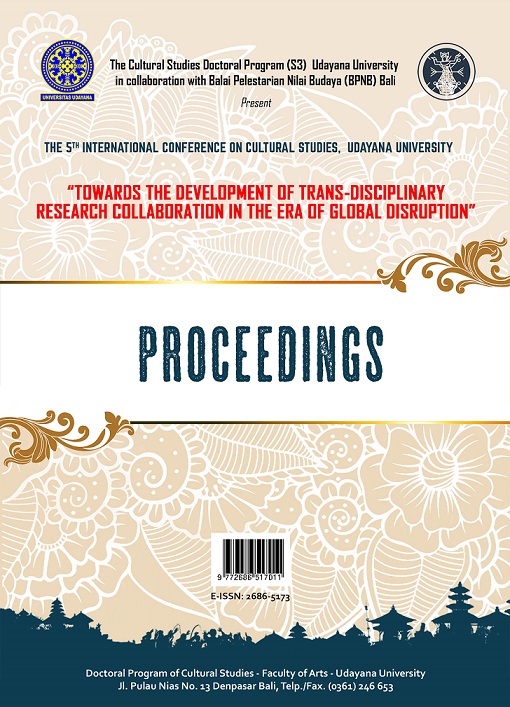CULINARY DEVELOPMENT STRATEGY IN TELAGA NIGHT CULINARY SAWANGAN DEPOK JAWA BARAT
Abstract
The development of tourism has a positive impact on the economy of community. The tourism sector certainly cannot be separated from the culinary sector. Because tourism and culinary is indeed a symbiosis of mutualism. Culinary becomes part of creative economy is a potential subsector for other sectors. Culinary actors are also increasingly creative and skilled at producing at traditional dish with development and innovation to follow current trends. Culinary developmensts are now increasingly developing in the city of Depok. It is inseperable from the existence of restaurants, cafes, or other culinary centers, especially culinary at night. Telaga Kuliner is the culinary center in Depok which serves various types of Indonesian and foreign foods. This place is officially opened on august 2017 by manager of Telaga Kuliner, Mr. Dwi Andriyanto, S.Kom. The method used in this research is qualitative descriptive method. Sampling is done by purposive sampling and snowball sampling. In will study, author use a triangulation method (participatory observation, interviews, and documentation) with 12 resource persons from manager and traders. After being grouped into 20 strategies with use SWOT analysis and then the author have a question to be ask for the manager and wich is became a five alternative strategies to develop a Telaga Kuliner to became culinary center that is able to serve food with good service and innovative offerings. So that Telaga Kuliner can be a destinations for culinary lovers to visited. The study will conducted from 20 May 2019 until 20 June 2019.
Downloads
References
Hardi, H. (2009). Inovasi Pelanggan Dalam Perencanaan & Pengembangan Produk. Yogyakarta: Graha Ilmu.
Minantyo, H. (2011). Dasar - Dasar Pengolahan Makanan. Jakarta: Graha Ilmu.
P.H, B., & Rufino, E. (2009). Dasar-Dasar Food Product. Yogyakarta: ANDI.
Rangkuti, F. (2014). Analisis SWOT : Teknik Membedah Kasus Bisnis Cara Perhitungan Bobot, Raring, dan OCAI. Jakarta: PT. Gramedia Pustaka Utama.
Simamora, B. (2003). Memenanhkan Pasar Dengan Pemasaran Efektif dan Profitable. Jakarta: PT Gramedia Pustaka Utama.
Soenardi, T. (2013). Teori Dasar Kuliner. Jakarta: PT Gramedia Pustaka Utama.
Sucipto, C. D. (2015). Keamanan Pangan Untuk Kesehatan Manusia. Yogyakarta: Gosyen Publishing.
Sugiyono. (2014). Metode Penelitian Kuantitatif, Kualitatif, dan Penelitian dan Pengembangan. Bandung: Alfabeta.
Suparno, P. (2008). Riset Tindakan untuk Pendidik. Jakarta: PT. Grasindo.
Wijatno, S. (2009). Pengantar Enterpreneurship. Jakarta : PT Grasindo Anggota Ikapi.





